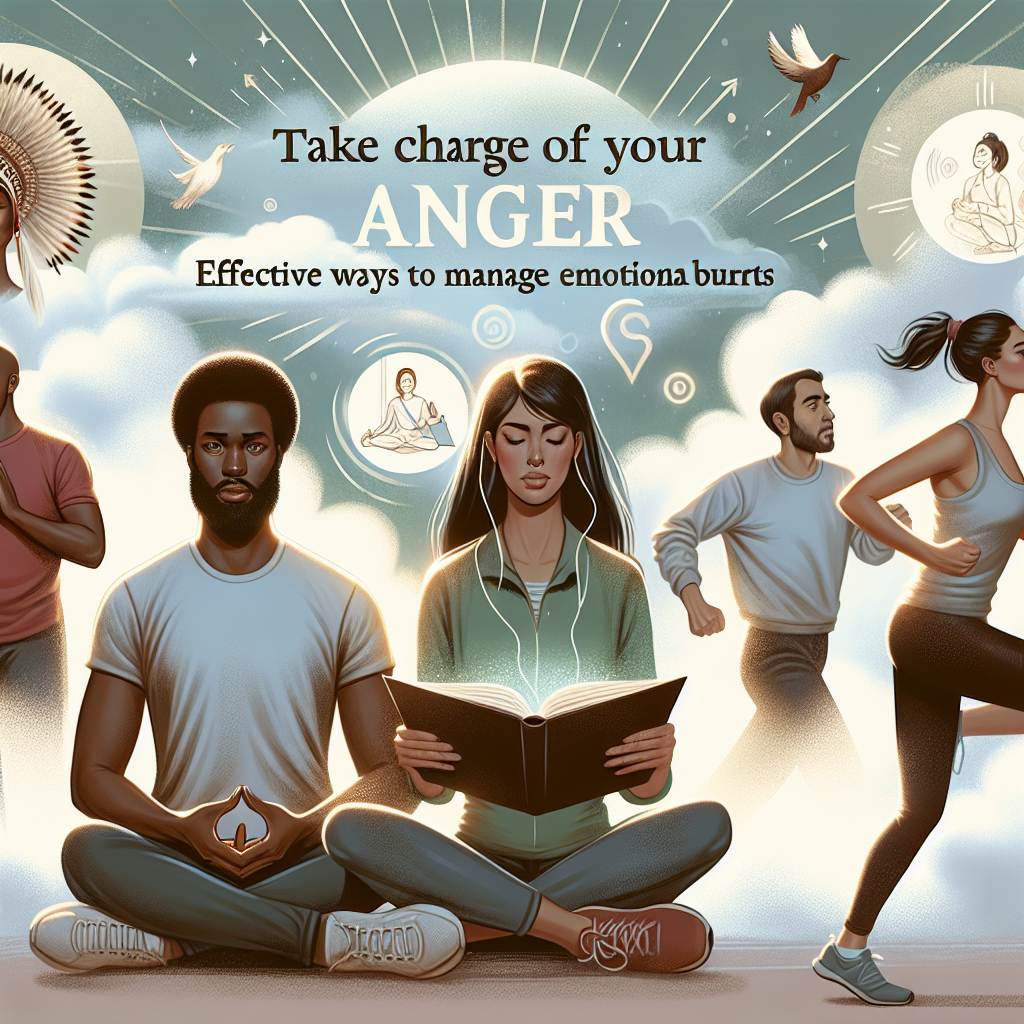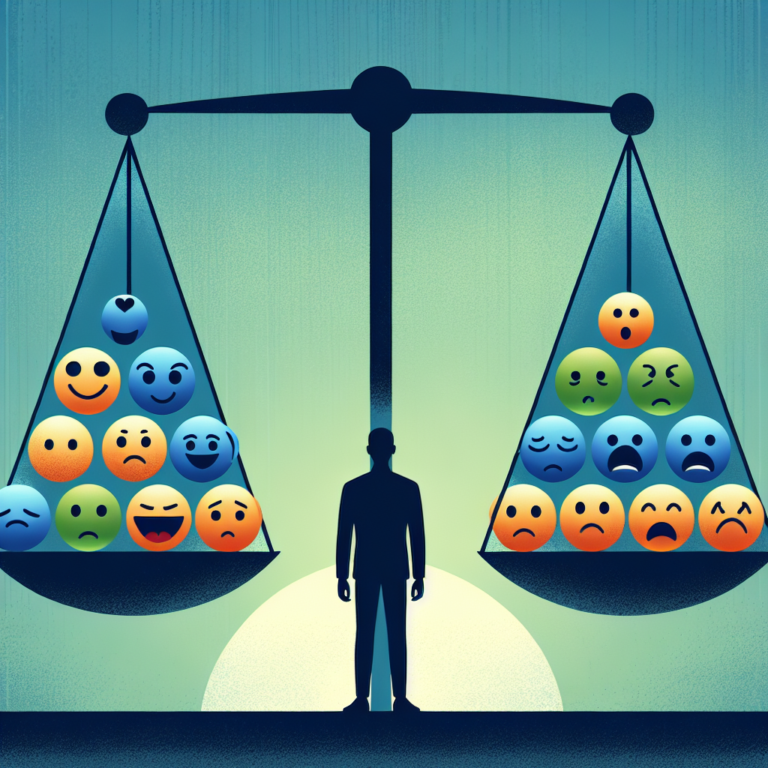
Take Charge of Your Anger: Essential Ways to Manage Emotional Outbursts
Introduction
Anger is a potent emotion that can often feel overwhelming and uncontrollable. Whether it’s triggered by external circumstances, personal issues, or even latent frustrations, failing to manage anger effectively can lead to regretful actions, strained relationships, and a myriad of other negative consequences. Those seeking a better understanding of their anger—and a way to channel it constructively—need only look at the numerous strategies for emotional regulation and mindfulness. In this article, we’ll delve into Take Charge of Your Anger: Effective Ways to Manage Emotional Outbursts, equipping you with practical tools to transform this powerful emotion into a positive force.
Understanding Anger: The Emotion Beneath the Surface
What Is Anger?
Anger is a basic human emotion, akin to happiness or sadness. It often arises in response to perceived threats or injustices. However, anger can sometimes become misplaced or misplaced, leading to outbursts that affect not just the individual but also those around them.
The Triggers of Anger
Understanding what triggers your anger is crucial in managing it effectively. Triggers can be external—such as disagreements with colleagues or traffic jams—or internal, such as personal insecurities or feelings of inadequacy. Identifying these triggers can be the first step in taking charge of your anger.
Emotional Outbursts: The Aftermath
The aftermath of uncontrolled anger can be damaging. Many people experience feelings of guilt, shame, and regret after an emotional outburst. Recognizing this cycle can motivate individuals to find better coping mechanisms.
Effective Strategies to Take Charge of Your Anger
1. Self-Awareness: Know Your Anger
One of the cornerstones of managing emotional outbursts is self-awareness. Keeping a journal to track your emotional responses can help identify patterns in your anger.
| Anger Triggers | Emotional Response | Coping Mechanism |
|---|---|---|
| Colleague’s Criticism | Frustration | Deep Breathing |
| Family Disagreement | Rage | Time-Out |
Case Study: Sarah, a marketing manager, began journaling her emotional responses to daily stressors. Over time, she noticed that many of her angry outbursts were triggered by perceived slights at work. By recognizing this, she was able to communicate her feelings more effectively, leading to better relationships with her peers.
2. Pause and Breathe: The Power of Deep Breathing
When anger strikes, many people react instinctively. A simple yet effective method for diffusing immediate anger is deep breathing.
- Take a slow, deep breath in for a count of four.
- Hold for a count of four.
- Exhale for a count of four.
Repeat this process until you feel calmer. This technique helps signal to your brain that it’s time to relax.
3. Reframe Your Thoughts: Cognitive Restructuring
Cognitive behavioral therapy (CBT) techniques can help reframe your thoughts about anger.
- Instead of thinking, "This is unfair, and I won’t tolerate it," try reframing to, "This situation is challenging, but it’s an opportunity for growth."
Case Study: During a heated argument, John practiced CBT by reframing his thoughts. Instead of viewing his spouse’s concerns as an attack, he consciously decided to listen and understand, which led to a constructive discussion rather than a fight.
4. Physical Activity: Channeling Anger into Exercise
Exercise can function as an outlet for pent-up frustration and energy. Incorporating regular physical activity into your routine is one of the most effective ways to manage anger.
Ways to Incorporate Physical Activity:
- Join a gym or group exercise class.
- Take daily walks, especially in nature.
- Engage in sports or activities that you enjoy.
5. Mindfulness: Cultivating Inner Peace
Mindfulness practices can significantly reduce emotional reactivity. Techniques like meditation, yoga, and tai chi promote relaxation and encourage emotional regulation.
Sample Mindfulness Activity
- Find a quiet place.
- Close your eyes and focus on your breath.
- If your mind begins to wander to angry thoughts, gently redirect your focus back to your breath.
Case Study: Mia, who struggled with outbursts at work, began a daily meditation practice. Over several weeks, her colleagues noted a marked difference in her temperament, allowing for a more harmonious workplace.
6. Communication: Express Yourself Constructively
Open and honest communication can help prevent misunderstandings that lead to anger. Use "I" statements to express how you feel without placing blame.
For instance:
- “I feel frustrated when meetings start late, as it affects our deadlines.”
7. Seek Professional Help: When to Reach Out
If anger feels unmanageable, consider seeking professional help. Therapists and counselors can offer specialized techniques tailored to your needs.
Common Therapies for Anger Management:
- Cognitive Behavioral Therapy (CBT)
- Dialectical Behavior Therapy (DBT)
- Anger Management Classes
Long-Term Strategies for Continuous Improvement
Regular Self-Reflection
Incorporate regular self-reflection to monitor your emotional state and adjust your coping mechanisms as needed.
Build a Support System
Surround yourself with individuals who understand your journey. This support can provide encouragement and accountability as you work towards managing your anger.
Set Realistic Goals
Start with small, achievable goals. For example, aim to respond calmly in one particular triggering scenario this week.
Conclusion
Taking charge of your anger is not just about suppression; it’s about embracing your emotional landscape with awareness and control. By employing effective strategies, you can transform your relationship with anger from one of hostility and defensiveness into one of understanding and growth. Remember, it’s a journey, not a destination. The more you practice these skills, the more effectively you can manage emotional outbursts. Let each experience empower you to rise and take control.
FAQs
1. What is the first step in anger management?
The first step is self-awareness. Keeping a journal to recognize triggers and emotions can be incredibly helpful.
2. Can anger be a positive emotion?
Yes, when channeled correctly, anger can be a motivating force that prompts you to take action or advocate for yourself and others.
3. Are physical confrontations always harmful?
Yes, acting out physically can exacerbate problems and lead to further issues, such as damaged relationships or legal consequences.
4. How can I prevent anger from affecting my relationships?
Practice open communication and use "I" statements to express your feelings without placing blame.
5. When should I seek professional help for anger management?
If your anger feels uncontrollable or leads to harmful behavior, it’s time to consult with a mental health professional.

















